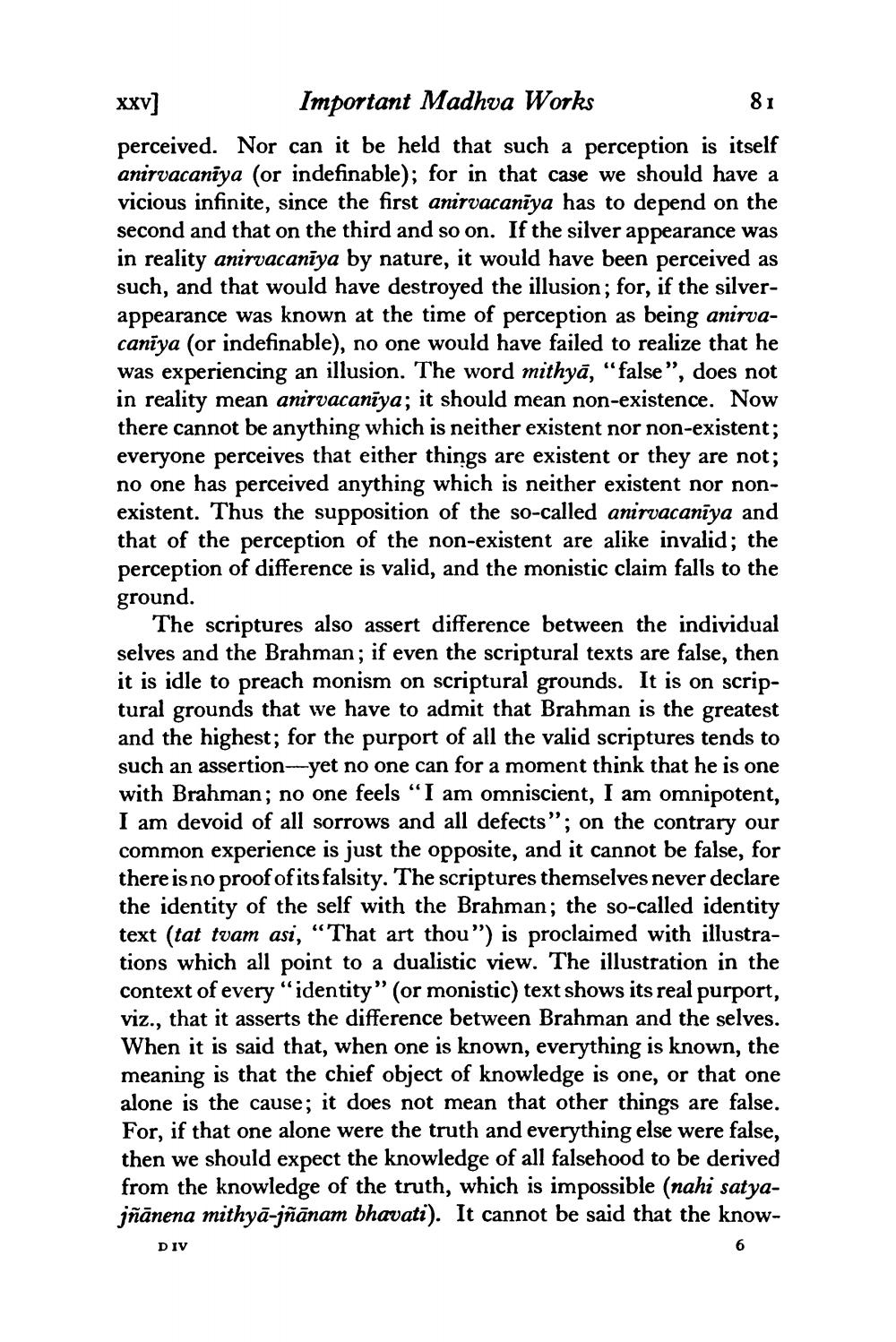________________
Xxv] Important Madhva Works
81 perceived. Nor can it be held that such a perception is itself anirvacaniya (or indefinable); for in that case we should have a vicious infinite, since the first anirvacaniya has to depend on the second and that on the third and so on. If the silver appearance was in reality anirvacanīya by nature, it would have been perceived as such, and that would have destroyed the illusion; for, if the silverappearance was known at the time of perception as being anirvacanīya (or indefinable), no one would have failed to realize that he was experiencing an illusion. The word mithyā, "false", does not in reality mean anirvacanīya; it should mean non-existence. Now there cannot be anything which is neither existent nor non-existent; everyone perceives that either things are existent or they are not; no one has perceived anything which is neither existent nor nonexistent. Thus the supposition of the so-called anirvacanīya and that of the perception of the non-existent are alike invalid; the perception of difference is valid, and the monistic claim falls to the ground.
The scriptures also assert difference between the individual selves and the Brahman; if even the scriptural texts are false, then it is idle to preach monism on scriptural grounds. It is on scriptural grounds that we have to admit that Brahman is the greatest and the highest; for the purport of all the valid scriptures tends to such an assertion--yet no one can for a moment think that he is one with Brahman; no one feels "I am omniscient, I am omnipotent, I am devoid of all sorrows and all defects”; on the contrary our common experience is just the opposite, and it cannot be false, for there is no proof of its falsity. The scriptures themselves never declare the identity of the self with the Brahman; the so-called identity text (tat tvam asi, “That art thou”) is proclaimed with illustrations which all point to a dualistic view. The illustration in the context of every “identity" (or monistic) text shows its real purport, viz., that it asserts the difference between Brahman and the selves. When it is said that, when one is known, everything is known, the meaning is that the chief object of knowledge is one, or that one alone is the cause; it does not mean that other things are false. For, if that one alone were the truth and everything else were false, then we should expect the knowledge of all falsehood to be derived from the knowledge of the truth, which is impossible (nahi satyajñānena mithyā-jñānam bhavati). It cannot be said that the know
DIV




